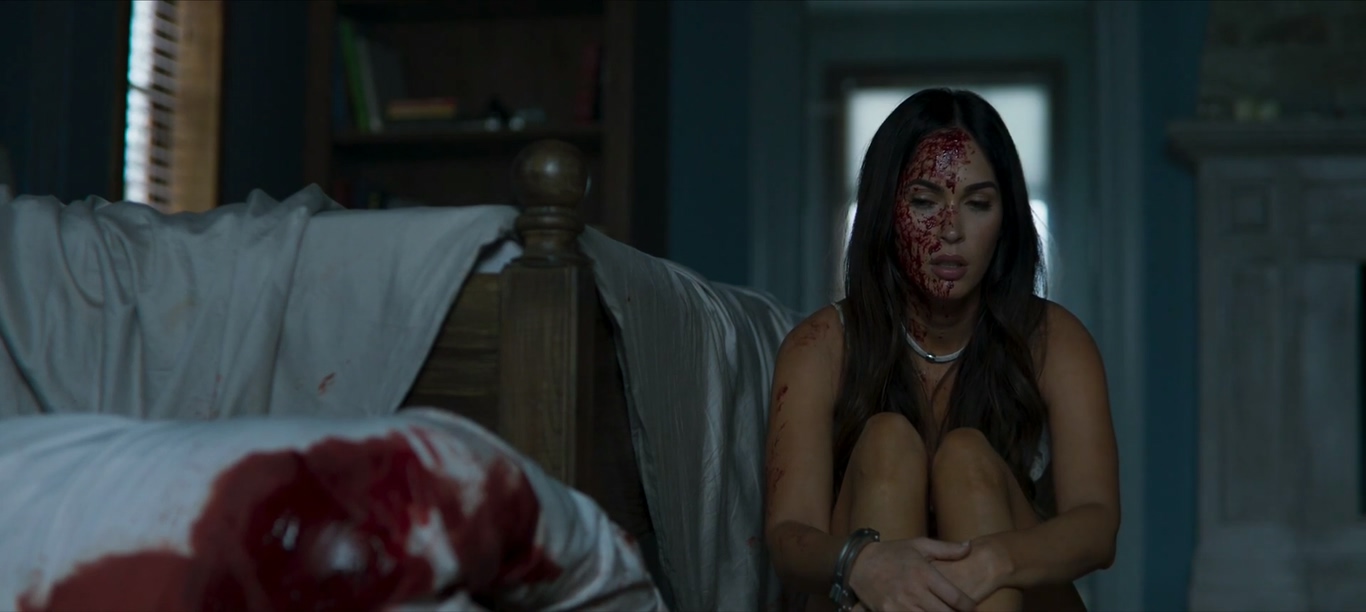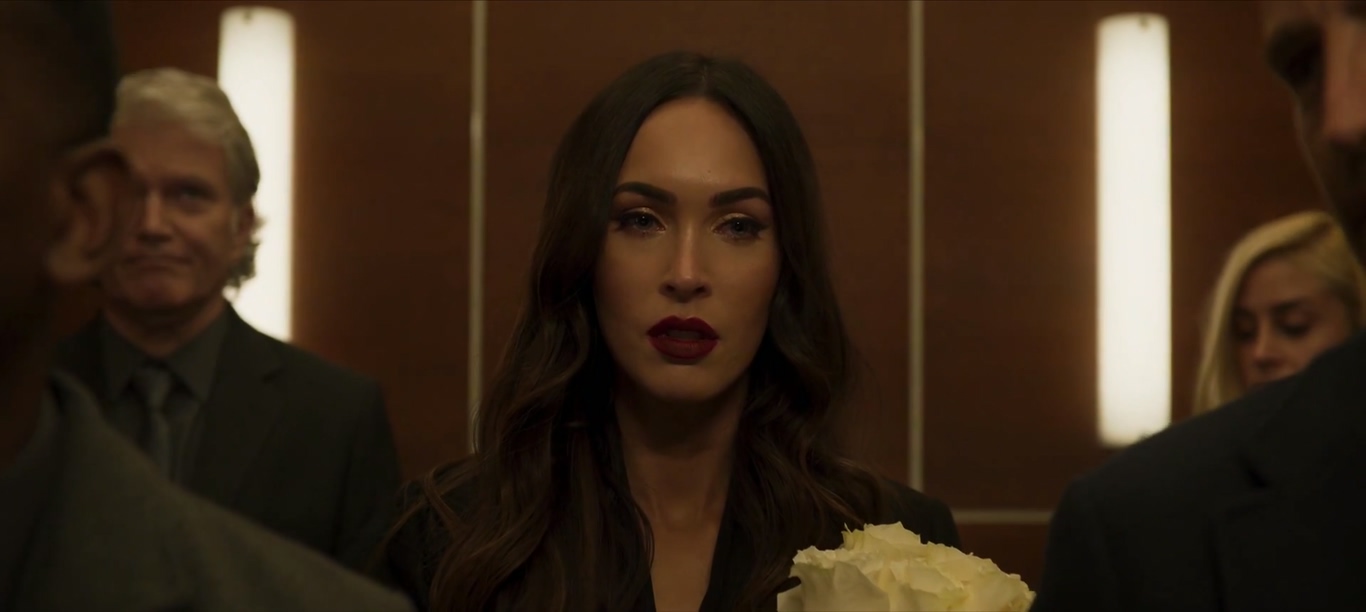Indie film director Scott Dale depicts a sinister cat-and-mouse chase on screen in his debut feature psychological thriller ‘Till Death.’ Starring Megan Fox in the central role, the straightforward and spine-chilling thriller begins with a rooted unease, and as the story progresses to its destined end, chaotic evil breaks loose. The marriage of Emma and Mark is in tatters, and she is desperately looking for an escape through an extramarital affair with an employee of her husband. However, when her menacing beau plans an anniversary surprise for Emma, she has no other option but to play along.
After a dinner date, the couple travels to their summer retreat to have an intimate night together. But when Emma wakes up handcuffed with a dead husband the following morning, her attempts at escapades turn into a visceral struggle for survival. Slow, brooding, and high in concepts, the thriller loads a good deal of bloody affairs in its standard one-and-a-half-hour duration. After watching the film, you may be wondering whether the story is ripped from a news headline because the premise feels quite plausible. If you are asking around to find whether the story is credible or not, you can count on us.
Is Till Death Based on A True Story?
No, ‘Till Death’ is not based on a true story. The film is not based on a true-crime incident, if that is what you are wondering. The story and the screenplay are originally written by Jason Carvey, the writer-director behind the 2006 John Krasinski vehicle ‘A New Wave.’ Scott Dale adapts the screenplay for the visual medium, and he does a commendable job at that. The film takes its inspiration from generic cliches – from the “damsel in distress” trope down to the broken marriage. From the ice-cold desolate backdrop of ‘Fargo’ to the vengeful husband plotting against a promiscuous wife in Hitchcock’s ‘Dial M for Murder,’ the film conceals traces of several thriller classics.

The director cited ‘The Shining’ as his favorite horror film, and the psychological unease created by the narrative is constructed in the shadow of the Kubrick classic. The Stanley Hotel is replaced by the more modest Lake House as a backdrop for the unfolding drama. However, the linear story steers clear of the kind of ambiguity that makes the Kubrick film a classic. There are not many interpretations here – the husband commits suicide to frame his anxious wife, and that is about it. The real surprise of the story is the elaborate plot devised by the husband to drag his wife down into a living nightmare.
The director, whose favorite horror persona is Christian Bale’s Patrick Bateman, ostensibly has some ideas about how a crafty aberrant mind works. Therefore, the corrupt corporate criminal attorney Mark externalizes the devilish persona of Patrick. However, the story of a suffocating marriage is all too real in our day and age. As the saying goes, it’s always the husband – and in a refreshing reversal of ‘Gone Girl,’ this husband would rather kill himself and leave his wife cufflinked to take the brunt. Seemingly, Coen Brothers meet David Fincher in this menacing blood-on-ice thriller that goes out of hand too fast too soon.
Read More: Till Death Ending, Explained


You must be logged in to post a comment.